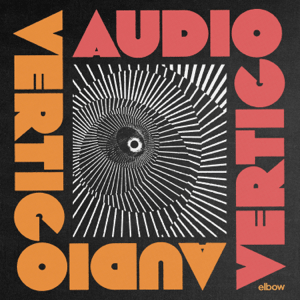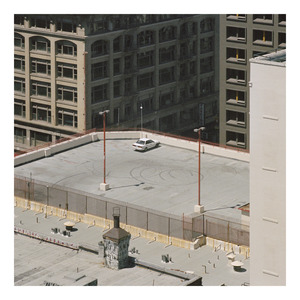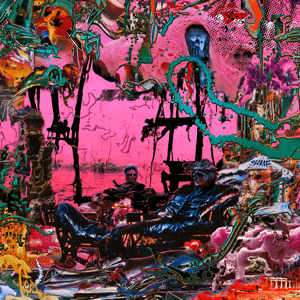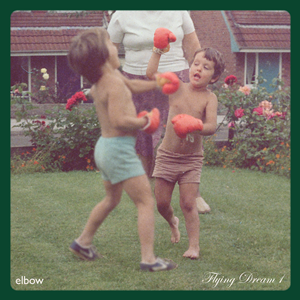As I mentioned in my review of the new Elbow EP, a lot of great music has come out in the past month or so, including the new Pulp album - their first in 24 years. So instead of talking about that (maybe I will if I get time), I'm going to talk about their most critically acclaimed and commercially successful record, Different Class. I've been a casual fan of the band for years; I grew up on Common People and Disco 2000 and I've had their greatest hits on my phone since the days before I had Spotify. However I never really got round to delving deeper into their discography until now. I've been on a bit of a Pulp kick recently with the new album coming out and their fantastic Glastonbury set (the best of the weekend in my opinion). I'm also currently reading Jarvis Cocker's book about him cleaning out his loft and discovering all the random junk he has accumulated over the years.
Different Class, alongside Blur's Parklife represent the quintessential elements of Britpop as a scene and genre. Both are albums telling irreverent tales of every day British life set to singalong anthems ready for a festival field. However, where the songs Parklife had this very Kinksian detachment from their subject matters, Different Class is much more close and autobiographical. How true to his life and / or embellished the narratives Jarvis Cocker presents are is a different question, but he certainly wants you to believe that the feelings described by the protagonist of these songs are genuine.
As an aside, I find it interesting to view Pulp's career as a sort of dark reflection of Blur's: both bands released early work that didn't make (that) much of a splash, then an album that set the groundwork for their mainstream success (His N Hers for Pulp and Modern Life Is Rubbish in Blur's Case) followed up by a mega smash (this album and Parklife). Both bands then pivoted into slightly darker, less commercial territory - which for Blur resulted in some of their most critically acclaimed work and set Damon Album up for even more success with Gorillaz. However Pulp's pivot away from the singalong anthems was ultimately met with a bit of a shrug from fans and critics alike and has resulted in the 24 year gap between records.
Also much like Parklife, Different Class is the kind of record where nearly every song could have been a single and therefore the record almost feels like a greatest hits playlist - quickly moving on from one big bombastic singalong to the next. The album spawned five actual singles in total; the aforementioned Common People and Disco 2000 (which still regularly get as much airplay as the biggest Blur and Oasis songs), Mis-Shapes and Sorted For E's & Wizz as a double A-side, and the slower ballad Somethings Changed. I'm not going to spend too much time talking about Common People or Disco 2000 as you must be living under a rock to have never heard these songs, but they just perfectly encapsulate the cinematic scale of entering your late teenage years / early 20s and all the opportunities and shenanigans that you are presented with; and the realisation that not everyone around you walks the same path as you or will be on the same path as you forever. The songs also incorporate something that sets Pulp apart from all their contemporaries - Disco. These song's are fun and tongue in cheek and made for wedding discos.
Sorted For E's & Wizz has grown into one of my favourite Pulp songs over recent months. The goofy retelling of going to a rave and getting off your face never ceases to make me smile. Mis-Shapes opens up the record with a call to arms for all the misfits and 'Mis-Shapes' to take centre stage against a jangly indie rock riff and Jarvis's typical dramatic crooning, with the song slowly progressing into a tighter, faster paced anthem. Something's Changed is a sweet love song set against some cinematic strings and a bluesy guitar solo - and is probably one of the most earnest moments on the record.
As for the other songs on the record, Underwear has grown into a fan favourite, tongue in cheek, raunchy love song and personally I think it does a better job of it than Something's Changed. Pencil Skirt is an equally raunchy smooth soul pastiche about having an affair with a married woman. I Spy is a moody and theatrical piece that instrumentally gives vibes of the darker side of new wave - the likes of Marc Almond and Pet Shop Boys. The song also tales the tale of lust infidelity, however presents it in a much less harmless way. Cocker is very much playing the villain in this tune. Live Bed Show feels like a mid point between the moodiness of I Spy and the slinkiness of Pencil Skirt that is once again about sex, and has a few Bowie-esque inflections in Jarvis's voice. It's a fine song, although it feels outshone by the tracks already preceding it on the record.
The back end of the record does slow down a little. F.E.E.L.I.N.G.C.A.L.LE.D.L.O.V.E is an odd art rock tune with a massive sounding chorus, but the verses are comprised of erratic spoken word vocals from Jarvis and strange atmospheric synth instrumentation. It's an interesting song but doesn't fully come together for me. Similarly Monday Morning Incorporates a ska rhythm, although doesn't really go hard enough to really capture the energy of the genre, and the chorus does just do away with it for a default-pulp singalong affair. Bar Italia is a little less full on as a closer, and doesn't really move the needle for me. None of these songs are even really bad in any way, but I think the best of Different Class is so many leagues beyond them that it becomes more noticeable.
Different Class is a classic, just for the singles alone. However much like Parklife, I feel like it's biggest shortcoming is that the compartmentalisation of the songs and just general vibe of the record makes the sequencing kind of irrelevant. The fact that Common People is the third song on the record does nothing to elevate it. It could have worked as a bombastic opener, the main centrepiece at the midpoint or a show stopping finale. As the title suggests, the record is different class, but I don't feel like it's necessary to listen in full, front to back to get maximum enjoyment from it. Putting the songs on a throwback party playlist or jamming out to them when they come up on shuffle works just as well.
Top Tracks: Mis-Shapes, Pencil Skirt, Common People, I Spy, Disco 2000, Sorted for E's & Wizz, Underwear
8/10









.png)


.png)

